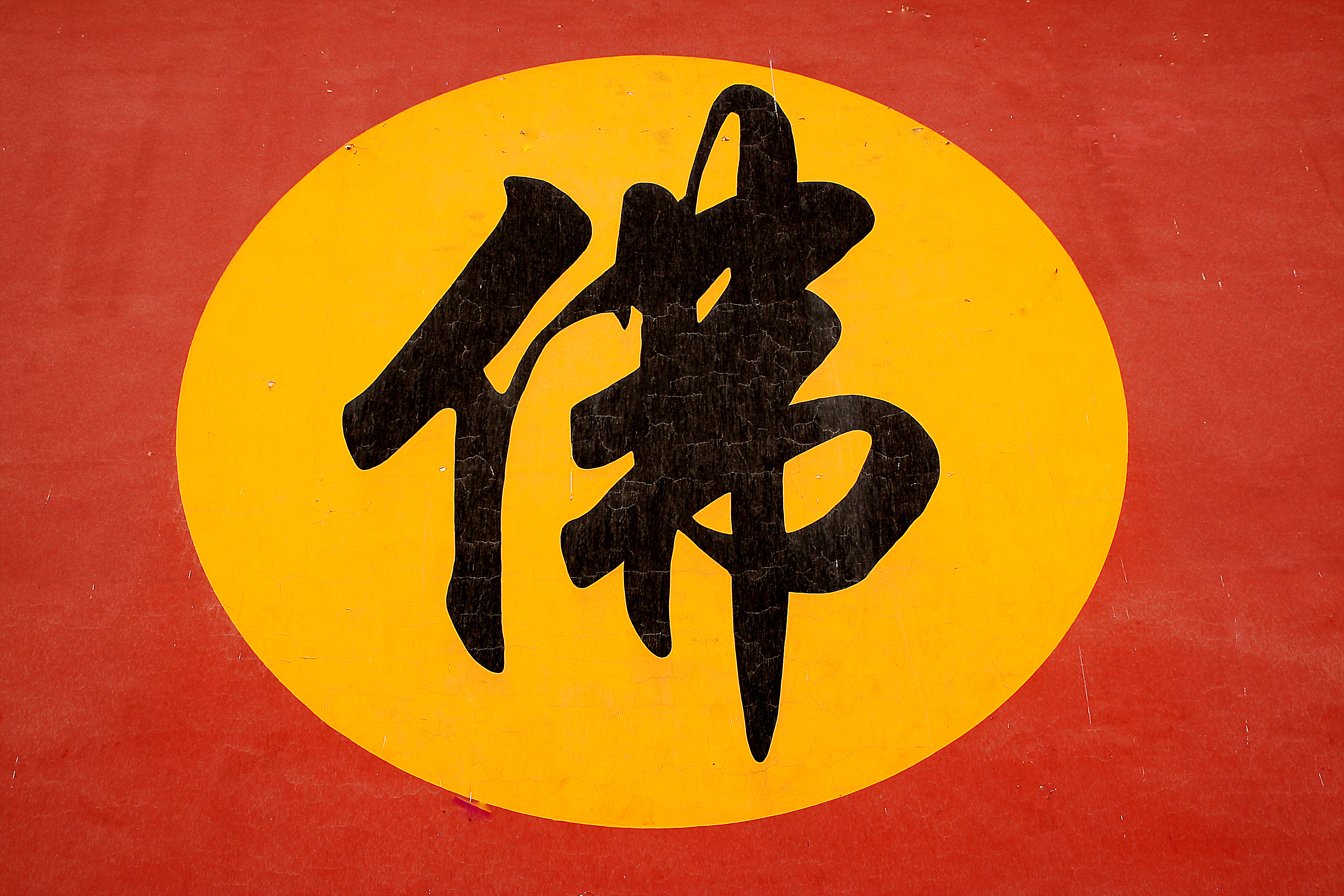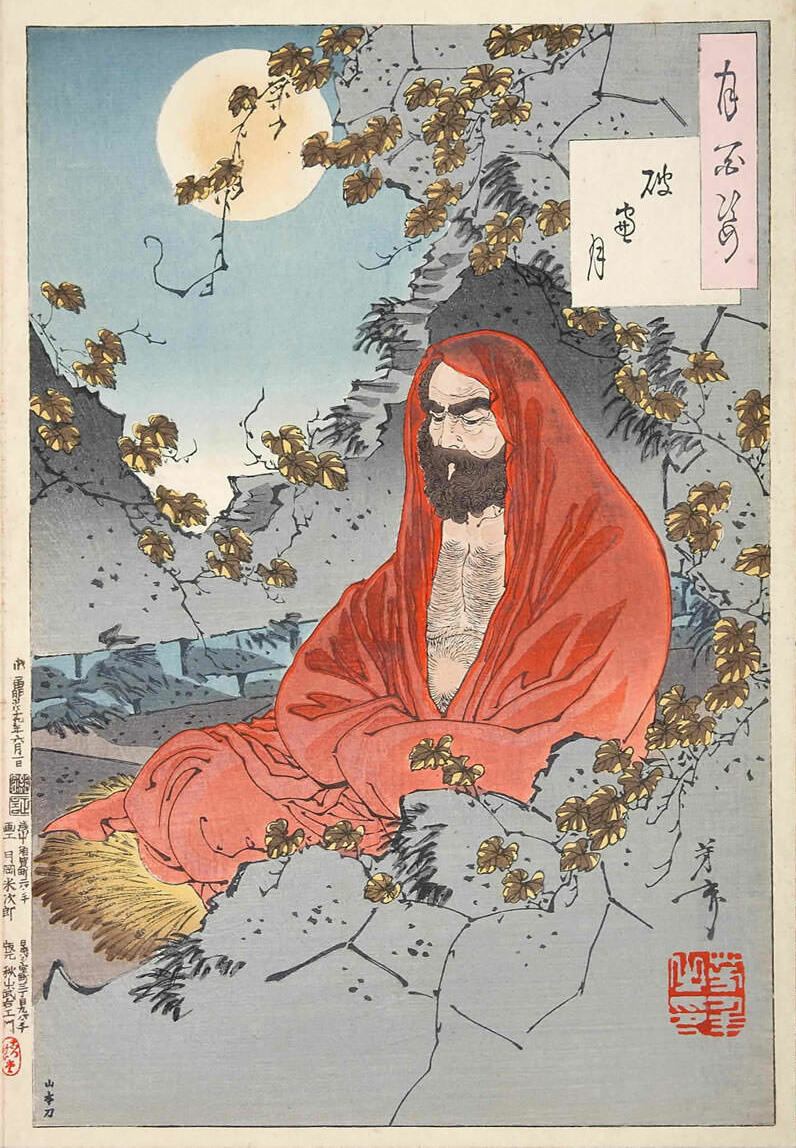|
Blue Cliff Records
The ''Blue Cliff Record'' () is a collection of Chan Buddhist kōans originally compiled in Song China in 1125, during the reign of Emperor Huizong, and then expanded into its present form by Chan master Yuanwu Keqin (1063–1135; ).K. Sekida, ''Two Zen Classics'' (1977) p. 18-20 The book includes Yuanwu's annotations and commentary on ''100 Verses on Old Cases'' (), a compilation of 100 kōans collected by Xuedou Chongxian (980–1052; , '). Xuedou selected 82 of these from the Song period work ''The Jingde Record of the Transmission of the Lamp'', with the remainder selected from the ''Yunmen Guanglu'' (, ''Extensive Record of Yunmen Wenyan'', 864–949). History Name and origin The ''Blue Cliff Record'' derives its name from the temple where Yuanwu Keqin wrote most of his commentaries, the Blue Cliff Cloister (碧巖院, ''Bìyán Yuàn'') in Hunan. The work was originally called Xuedou's ''Juko'' (''ju'', verse; ''ko'', old koans) before its ''Blue Cliff Record'' title was ... [...More Info...] [...Related Items...] OR: [Wikipedia] [Google] [Baidu] |
Chan Buddhism
Chan (; of ), from Sanskrit '' dhyāna'' (meaning " meditation" or "meditative state"), is a Chinese school of Mahāyāna Buddhism. It developed in China from the 6th century CE onwards, becoming especially popular during the Tang and Song dynasties. Chan is the originating tradition of Zen Buddhism (the Japanese pronunciation of the same character, which is the most commonly used English name for the school). Chan Buddhism spread from China south to Vietnam as Thiền and north to Korea as Seon, and, in the 13th century, east to Japan as Japanese Zen. History The historical records required for a complete, accurate account of early Chan history no longer exist. Periodisation The history of Chan in China can be divided into several periods. Zen, as we know it today, is the result of a long history, with many changes and contingent factors. Each period had different types of Zen, some of which remained influential, while others vanished. Andy Ferguson distinguishes thr ... [...More Info...] [...Related Items...] OR: [Wikipedia] [Google] [Baidu] |
Bodhidharma
Bodhidharma was a semi-legendary Bhikkhu, Buddhist monk who lived during the 5th or 6th century CE. He is traditionally credited as the transmitter of Chan Buddhism to China, and is regarded as its first Chinese Lineage (Buddhism), patriarch. He is also popularly regarded as the founder of Shaolin kung fu, an idea popularized in the 20th century, but based on the 17th century Yijin Jing and the Daoist association of ''daoyin'' gymnastics with Bodhidharma. Little contemporary biographical information on Bodhidharma is extant, and subsequent accounts became layered with legend and unreliable details. According to the principal Chinese sources, Bodhidharma came from the Western Regions, which typically refers to Central Asia but can also include the Indian subcontinent, and is described as either a "Persians, Persian Central Asian" or a "South Indian [...] the third son of a great Indian king." Aside from the Chinese accounts, several popular traditions also exist regarding Bodhi ... [...More Info...] [...Related Items...] OR: [Wikipedia] [Google] [Baidu] |
1125 Works
Eleven or 11 may refer to: *11 (number) * One of the years 11 BC, AD 11, 1911, 2011 Literature * ''Eleven'' (novel), a 2006 novel by British author David Llewellyn *''Eleven'', a 1970 collection of short stories by Patricia Highsmith *''Eleven'', a 2004 children's novel in The Winnie Years by Lauren Myracle *''Eleven'', a 2008 children's novel by Patricia Reilly Giff *''Eleven'', a short story by Sandra Cisneros Music *Eleven (band), an American rock band * Eleven: A Music Company, an Australian record label *Up to eleven, an idiom from popular culture, coined in the movie ''This Is Spinal Tap'' Albums * ''11'' (The Smithereens album), 1989 * ''11'' (Ua album), 1996 * ''11'' (Bryan Adams album), 2008 * ''11'' (Sault album), 2022 * ''Eleven'' (Harry Connick, Jr. album), 1992 * ''Eleven'' (22-Pistepirkko album), 1998 * ''Eleven'' (Sugarcult album), 1999 * ''Eleven'' (B'z album), 2000 * ''Eleven'' (Reamonn album), 2010 * ''Eleven'' (Martina McBride album), 2011 * ''Eleven'' (Mr Fog ... [...More Info...] [...Related Items...] OR: [Wikipedia] [Google] [Baidu] |
Zen Koan Collections
Zen (; from Chinese: ''Chán''; in Korean: ''Sŏn'', and Vietnamese: ''Thiền'') is a Mahayana Buddhist tradition that developed in China during the Tang dynasty by blending Indian Mahayana Buddhism, particularly Yogacara and Madhyamaka philosophies, with Chinese Taoist thought, especially Xuanxue, Neo-Daoist. Zen originated as the Chan Buddhism, Chan School (禪宗, ''chánzōng'', 'meditation school') or the Buddha-nature, Buddha-mind school (佛心宗'', fóxīnzōng''), and later developed into various sub-schools and branches. Chan is traditionally believed to have been brought to China by the semi-legendary figure Bodhidharma, an Indian (or Central Asian) monk who is said to have introduced dhyana teachings to China. From China, Chán spread south to Vietnam and became Thiền, Vietnamese Thiền, northeast to Korea to become Korean Seon, Seon Buddhism, and east to Japan, becoming Japanese Zen. Zen emphasizes Buddhist meditation, meditation practice, direct insight int ... [...More Info...] [...Related Items...] OR: [Wikipedia] [Google] [Baidu] |
Thomas Cleary
Thomas Francis Cleary (24 April 1949 – 20 June 2021) was an American translator and author of more than 80 books related to Buddhist, Taoist, Confucian, and Muslim classics, and of ''The Art of War'', a treatise on management, military strategy, and statecraft. He has translated books from Pali, Sanskrit, Arabic, Chinese, Japanese, and Old Irish into English. Cleary lived in Oakland, California. Early life Cleary became interested in Buddhism when he was a teenager; his researches into Buddhist thought began with a desire to learn during this time of his life. When he began translating, he chose either untranslated works or—as in the case of Sun Tzu's ''The Art of War''—books whose extant translations were "too limited". Cleary earned a Ph.D. in East Asian Languages and Civilizations from Harvard University, and a JD from the Boalt Hall School of Law at the University of California, Berkeley. After completing his doctoral studies, Cleary had little involvement with ... [...More Info...] [...Related Items...] OR: [Wikipedia] [Google] [Baidu] |
Nichi Nichi Kore Kōnichi
Nichi is a given name and nickname, and may refer to: * Nichi Farnham (born 1963), American politician * Nichi Hodgson (born 1983), British journalist, broadcaster, and author * Nichi Vendola (born 1958), Italian politician See also * Nicci (other) * Nicki Nicki is a given name, and may refer to: Film and television * Nicki Aycox (1975–2022), American actress best known for her roles as Syl on the series ''Dark Angel'' and Stella Vessey on the dramedy ''Ed'' * Nicki Chapman (born 1967), English ..., a given name {{given name Nicknames Feminine given names ... [...More Info...] [...Related Items...] OR: [Wikipedia] [Google] [Baidu] |
Mondo (scripture)
A is a recorded collection of dialogues between a pupil and a ''rōshi'' (a Zen Buddhist teacher). Zen tradition values direct experience and communication over scriptures. (Some teachers go so far as to instruct their pupils to tear up their scriptures.) However, sometimes the ''mondō'' acts as a guide on the method of instruction. One example of a non-Buddhist ''mondō'' is the ''Sokuratesu-no-mondō'', the Japanese translation of the "Socratic method", whereby Socrates Socrates (; ; – 399 BC) was a Ancient Greek philosophy, Greek philosopher from Classical Athens, Athens who is credited as the founder of Western philosophy and as among the first moral philosophers of the Ethics, ethical tradition ... asked his students questions in order to elicit the innate truth from assumed facts External linksA brief synopsis of Zen Buddhism from the BBC website Zen Zen texts Japanese Buddhist literature {{Zen-stub ... [...More Info...] [...Related Items...] OR: [Wikipedia] [Google] [Baidu] |
Book Of Equanimity
''Book of Equanimity'' or ''Book of Serenity'' or ''Book of Composure'' (Chinese: 從容錄, Cóngróng lù; Japanese: 従容錄, ''Shōyōroku'') is a book compiled by Wansong Xingxiu (1166–1246), and first published in 1224. The book comprises a collection of 100 koans written by the Chan Buddhist master Hongzhi Zhengjue (1091–1157), together with commentaries by Wansong. Wansong's compilation is the only surviving source for Hongzhi's koans. The full title is ''The Record of the Temple of Equanimity With the Classic Odes of Venerable Tiantong Jue and the Responsive Commentary of Old Man Wansong'' (, ''Wansong Laoren Pingchang Tiantong Jue Heshang Songgu Congrong An Lu'', Taisho Tripitaka Vol. 48, No. 2004). Along with '' The Gateless Barrier'', the ''Book of Equanimity'' is considered one of the two primary compilations of Zen dialogue. Shohaku Okumura has called the collection "a classic text that is still studied by Zen students today." Reb Anderson has called it "a ... [...More Info...] [...Related Items...] OR: [Wikipedia] [Google] [Baidu] |
101 Zen Stories
''101 Zen Stories'' is a 1919 compilation of Zen koans including 19th and early 20th century anecdotes compiled by Nyogen Senzaki, and a translation of '' Shasekishū'', written in the 13th century by Japan Japan is an island country in East Asia. Located in the Pacific Ocean off the northeast coast of the Asia, Asian mainland, it is bordered on the west by the Sea of Japan and extends from the Sea of Okhotsk in the north to the East China Sea ...ese Zen master Mujū (無住) (literally, "non-dweller"). The book was reprinted by Paul Reps as part of '' Zen Flesh, Zen Bones''. Well-known koans in the collection include ''A Cup of Tea'' (1), ''The Sound of One Hand'' (21), ''No Water, No Moon'' (29), and ''Everything is Best'' (31). See also * '' Blue Cliff Record'' * '' The Gateless Barrier'' * '' Book of Equanimity'' References External links 101 Zen Koans Zen koan collections 1919 books {{zen-book-stub ... [...More Info...] [...Related Items...] OR: [Wikipedia] [Google] [Baidu] |
Diamond Sutra
The ''Diamond Sutra'' (Sanskrit: ) is a Mahayana, Mahāyāna Buddhism, Buddhist sutra from the genre of ('perfection of wisdom') sutras. Translated into a variety of languages over a broad geographic range, the ''Diamond Sūtra'' is one of the most influential Mahayana sutras in East Asia, and it is particularly prominent within the Chan Buddhism, Chan (or Zen) tradition, along with the ''Heart Sutra''. A copy of the Tang dynasty ''Diamond Sūtra'' was found among the Dunhuang manuscripts in 1900 by Daoist monk Wang Yuanlu and sold to Aurel Stein in 1907. It dates back to May 11, 868 CE and is broadly considered to be the oldest extant printed book, although other, earlier, printed materials on paper exist that predate this artifact. It is in the collection of the British Library. The book of the diamond sutra is also the first known creative work with an explicit public domain dedication, as its colophon (publishing), colophon at the end states that it was created "for unive ... [...More Info...] [...Related Items...] OR: [Wikipedia] [Google] [Baidu] |
Vimalakirti
Vimalakīrti ( ' "stainless, undefiled" + ' "fame, glory, reputation") is a bodhisattva and the central figure in the ', Wisdom Library : Significance of Vimalakirti. 84000.co : The Teaching of Vimalakīrti. Introduction. which presents him as the ideal [...More Info...] [...Related Items...] OR: [Wikipedia] [Google] [Baidu] |



